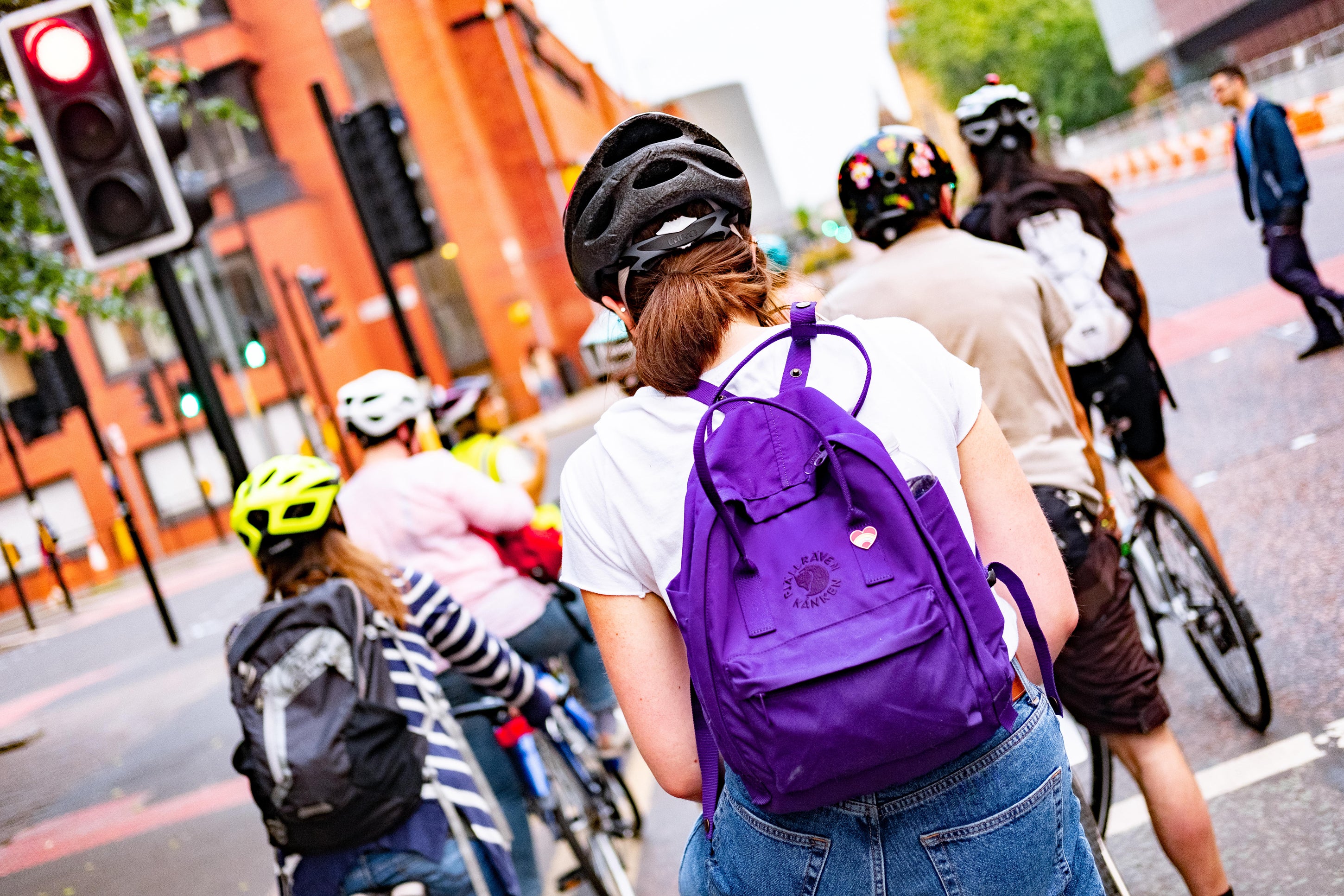Looking for a new healthy hobby? 6 beginner tips to get into cycling
Cycling could be the way you get on top of your mental and physical health. Imy Brighty-Potts asks how to get started.

Your support helps us to tell the story
From reproductive rights to climate change to Big Tech, The Independent is on the ground when the story is developing. Whether it's investigating the financials of Elon Musk's pro-Trump PAC or producing our latest documentary, 'The A Word', which shines a light on the American women fighting for reproductive rights, we know how important it is to parse out the facts from the messaging.
At such a critical moment in US history, we need reporters on the ground. Your donation allows us to keep sending journalists to speak to both sides of the story.
The Independent is trusted by Americans across the entire political spectrum. And unlike many other quality news outlets, we choose not to lock Americans out of our reporting and analysis with paywalls. We believe quality journalism should be available to everyone, paid for by those who can afford it.
Your support makes all the difference.It might be time to get pedalling as GPs are set to start prescribing cycling and walking as part of a trial in England that aims to help improve mental and physical wellbeing and tackle health disparities.
The Department for Transport have announced that £12.7 million has been given to 11 local authorities across the country to fund pilot social prescriptions that could include adult cycle training, walking groups and free bike loans.
Walking and Cycling minister Trudy Harrison said the activities have “so many benefits – from improving air quality in our communities to reducing congestion on our busiest streets”.
“It also has an enormous positive impact on physical and mental health, which is why we have funded these projects which will get people across the country moving and ease the burden on our NHS,” she said.
But, if you have never cycled before, or haven’t hopped on a bike since you were a child, it can be pretty daunting. So, what do you need to know before you do?
1. Make sure you are safe
Olivia French races for Storey Racing (storeyracing.cc/) and is a part of the SKODA DSI Cycling academy. She started cycling just over two years ago and has fallen in love with it.
She says: “Firstly, before you have even left for your ride, you should always quickly check over your bike and kit to make sure everything is working as it should. There are loads of short YouTube videos on how to do this, the most common being the ‘M-check.”
And make sure someone knows where you are off to, she advises: “If you’re riding alone, and especially if you’re riding off-road where potentially there aren’t many other people, make sure someone knows where you’re going in case of a problem.”
It is also vital to make sure you have a helmet, bike lights and high vis jacket from the get go so you aren’t caught out by it getting dark quicker than you expect. With just a few, low-cost items, you will make your foray into cycling much safer.
2. Don’t ride hard all the time
Just because you are new to cycling, doesn’t mean you have to overcommit.
“Everyone’s temptation at the beginning of riding a bike is to go out and try really hard, get really out of breath as you feel like this is going to get you fitter quickest,” French says.
“If you ride at a high intensity too much, you will start to feel tired all the time and see a fitness plateau, which can be demoralising and make you not want to ride your bike, which is not what we want.”
3. Track your rides to see progress
Once you have got into the habit of pedalling around, starting to track your routes and pace could encourage you to keep up the good work.
“Strava is a fantastic tool that allows you to keep a record of all the rides you have done so you can easily track improvement. I also like it as I can see where my friends are riding, and it helps me discover new routes,” French says.
4. Be confident fixing a puncture
We cannot predict everything that will happen on our cycling adventures, but we can prepare.
“Practise fixing a puncture at home under no time pressure or stress. You don’t want to feel unsure of how to do this if you’ve been caught out in the rain and cold and need to get it fixed as fast as possible,” explains French.
5. Find more experienced riders and ask questions
Cycling is a great way to meet people according to French, and they may be able to help you navigate the world of cycling.
She suggests: “You can find riders through Strava or Facebook groups, or head down to your local bike shop and join in on a group ride.
“Bott and Co’s group club finder tool is also a great way of finding groups in your local area – and don’t worry about being inexperienced, most people are just happy to get out on their bike with other keen cyclists.”
6. Shop around to keep costs low
Amy Marks, Marketing Manager for British wheel brand Parcours (parcours.cc/) explains: “When starting out in cycling, the cost of kit, bikes and equipment can be overwhelming.
“It’s important to remember that it’s not necessary to spend big money and there are also schemes to help, such as the cycle to work scheme.”
“There’s a huge range of cycling clothing out there and it can be overwhelming choosing the best ones for you. The most important thing is getting a good helmet plus comfortable cycling shorts that are padded.”